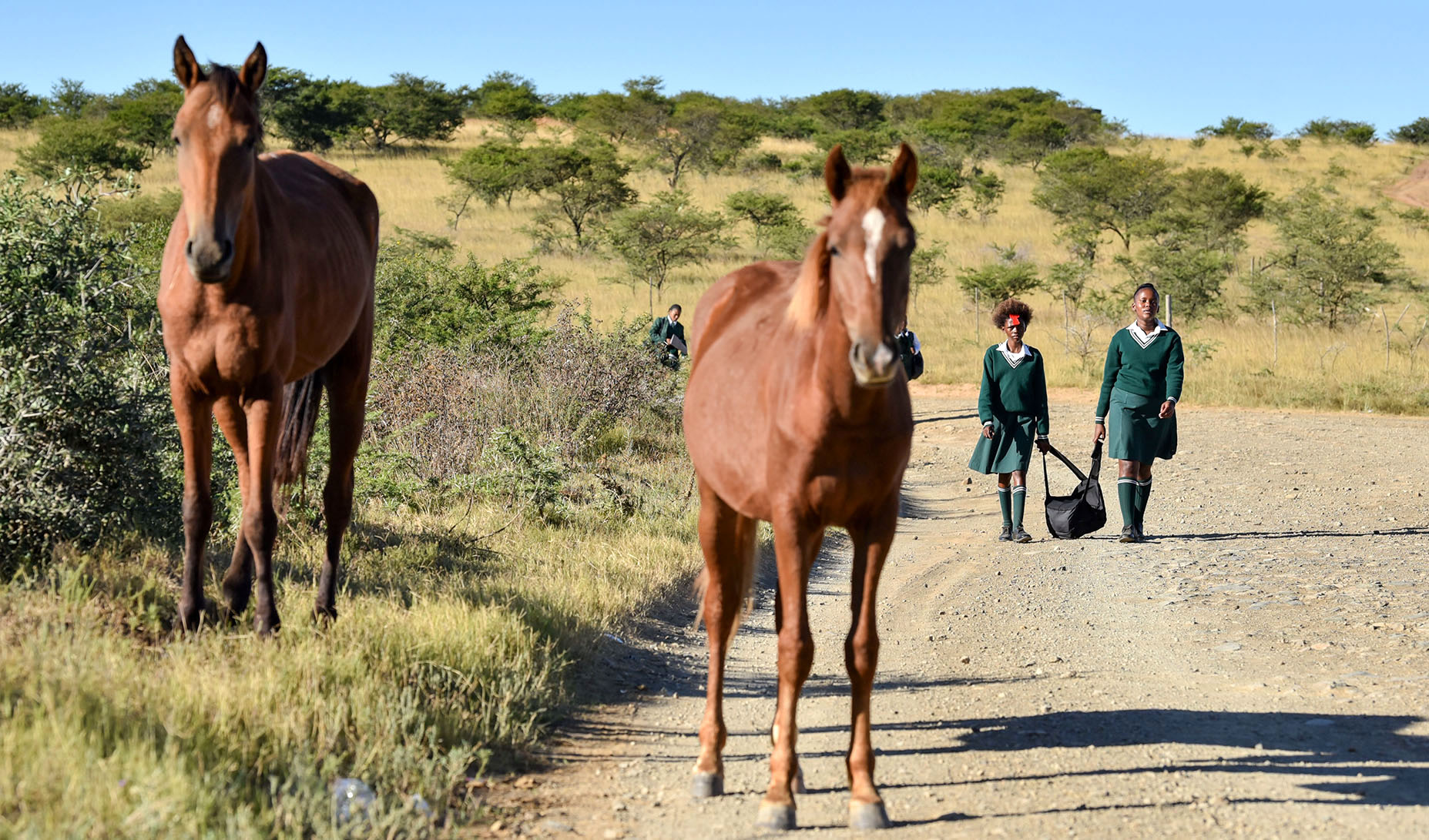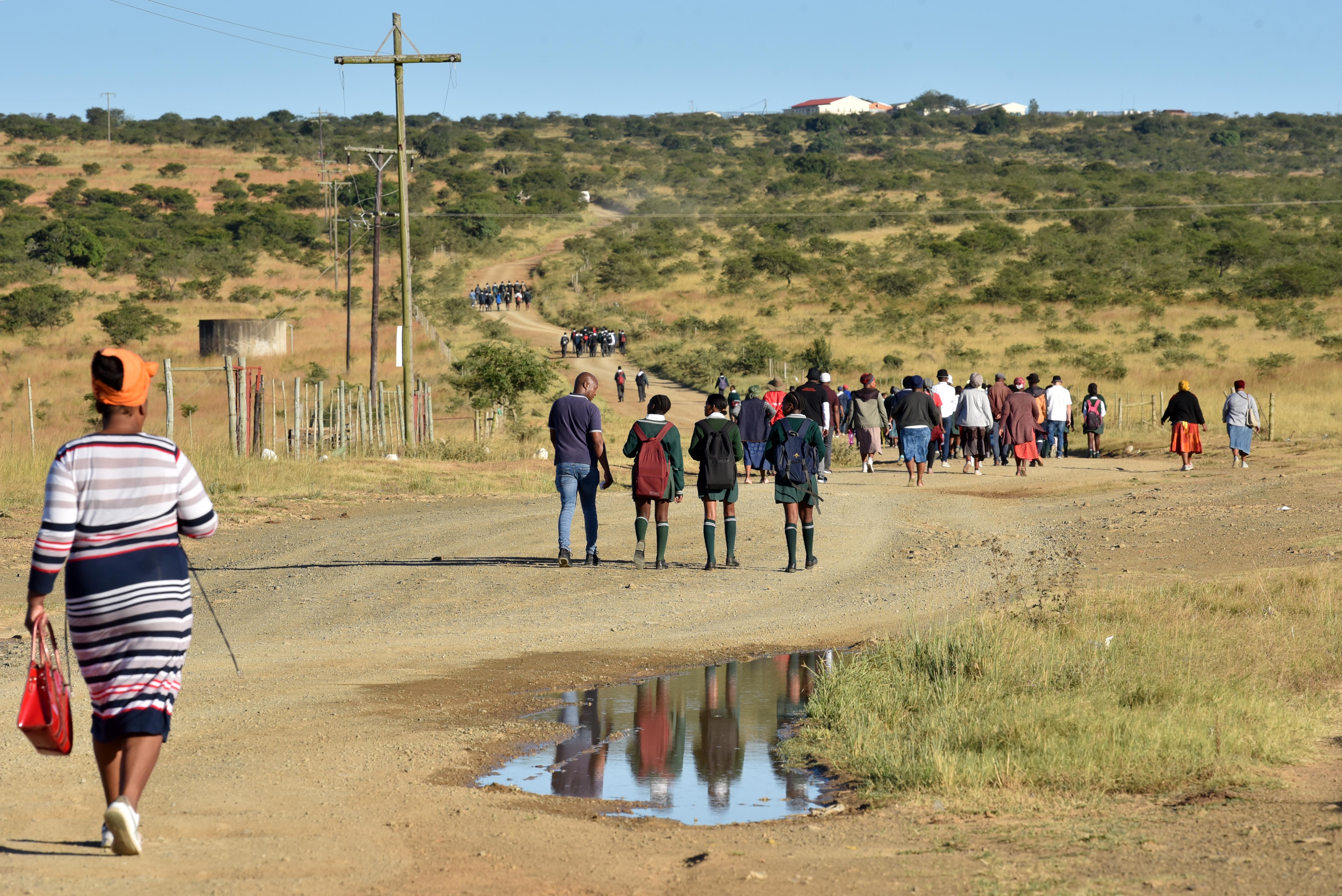Conversations with community members in Nqileni, a remote rural village on the Wild Coast, reveal the devastating impacts of poor roads.
“The school bus couldn’t reach our village and so we had to rent a place closer to the school. When we couldn’t afford it any more, I had to leave school,” said Lidiya Gashe.
 The South African Human Rights Commission has issued a scathing report on the Eastern Cape government and municipalities' failure to maintain the province's roads. (Photo: Deon Ferreira)
The South African Human Rights Commission has issued a scathing report on the Eastern Cape government and municipalities' failure to maintain the province's roads. (Photo: Deon Ferreira)
Musa Qondovu, another Nqileni resident, said: “When my mother broke her leg, we had to carry her to the bus stop on a mattress because a car couldn’t get to our place.”
Meisi Mbi, the administrator at Bulungula Xhosa Community EcoLodge based in Nqileni, said, “the guests we depend on for our income are turned away by the bad roads”.
The SA Human Rights Commission (SAHRC) report:
With limited government support, shack-dwellers’ movement Abahlali base Nqileni pooled resources and tried to fix the gravel roads themselves, but self-reliance has its limits.
As an NGO based in Nqileni, the Equality Collective made a submission to the SAHRC inquiry in 2023, conveying the daily strain of poorly maintained roads.
Poor roads delay or prevent access to emergency healthcare and police responses to crime, drive tourists away and escalate the costs of food and local essential services.
When gravel roads are washed away, villages become isolated and cut off from access to goods and services. When ambulances can’t reach villages and people can’t get to clinics, manageable health crises become fatal. When teachers and learners can’t get to schools or cross flooded bridges, children are robbed of educational opportunities, academic progress is stymied and intergenerational poverty is deepened.
These impacts further compound entrenched poverty. According to the HSRC, in 2023, most households (73.4%) in the Eastern Cape experienced food insecurity and 20.2% of households were severely food insecure. The impacts of poor roads are disproportionate and the municipal infrastructure funding model does little to tackle the structural inequality former homeland areas face.
 Learners from Ntabenkonyana Senior Secondary School in Xesi, Eastern Cape, on the last stretch of their 10km walk to school. (Photo: Deon Ferreira)
Learners from Ntabenkonyana Senior Secondary School in Xesi, Eastern Cape, on the last stretch of their 10km walk to school. (Photo: Deon Ferreira)
Nqileni is situated in the Mbhashe local municipality in the former Transkei homeland, which comprises thousands of villages each requiring an access road, a starkly different scenario from other rural areas with large private farms, relatively few settlements and far fewer kilometres of roads.
The Equality Collective compared funding for road infrastructure in Mbhashe, Blouberg, Winnie Madikizela Mandela and Mandeni local rural municipalities. These municipalities had comparable budgets, but Mbhashe was responsible for about 2,000km of roads while the others varied between 700km and 900km. Mbhashe allocates almost double the amount of its total revenue to road maintenance than these municipalities. This is not about the misallocation of funds. Mbhashe’s road maintenance plan estimates that around R790-million would be needed to fix its road network.
Our findings and subsequent engagements with the South African Local Government Association and the Mbhashe municipality confirmed the unique road maintenance challenges faced by former homeland municipalities.
Funding model failure
The government’s current municipal funding model fails to consider these challenges and the ongoing structural marginalisation of communities in former homelands. A change in the funding model is a critical starting point in addressing inequalities of the past and ensuring former homeland communities are not further marginalised.
Dedicated funding that prioritises rural infrastructure and its maintenance is urgent. The National Treasury needs to rethink the municipal funding formula and put improved and informed funding mechanisms in place that take account of the unique challenges and high costs of road maintenance and infrastructure in remote former homeland areas.
The SAHRC report recommends that public participation in road planning is prioritised. Communities who use these roads are best placed to guide priorities and co-create solutions. All interventions must meaningfully engage community members.
The Eastern Cape’s road infrastructure crisis is a human rights crisis. Policymakers must recognise that roads are paths to justice, equity and dignity. If our government is truly committed to building an equitable South Africa, then it must pave the way for rural communities to connect with one another and the rest of the country. Real progress requires more than occasional road repairs or political promises; it requires structural change, a new funding model and a commitment to rural agency. DM
Tinotenda M Muringani is an intern researcher and Alana Potter is head of research and advocacy at The Equality Collective – a rural justice activist organisation in the rural Eastern Cape. The road research was done through the Sophakama initiative, co-funded by the European Union, made up of four social justice organisations working towards rural justice in former homeland municipalities in KwaZulu-Natal, Mpumalanga, North West and Eastern Cape.




 Learners from Ntabenkonyana Senior Secondary School in Xesi, Eastern Cape, on the last stretch of their 10km walk to school. (Photo: Deon Ferreira)
Learners from Ntabenkonyana Senior Secondary School in Xesi, Eastern Cape, on the last stretch of their 10km walk to school. (Photo: Deon Ferreira)